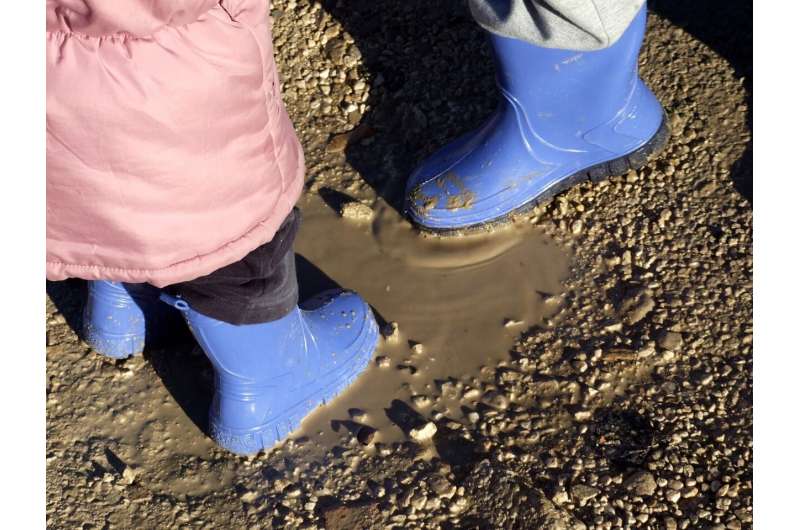This article has been reviewed according to Science X's editorial process and policies. Editors have highlighted the following attributes while ensuring the content's credibility:
fact-checked
trusted source
proofread
Study finds climate change increases risk of cryptosporidiosis outbreaks in New Zealand

More cryptosporidiosis outbreaks could be on the cards for Aotearoa New Zealand as extreme rainfall events become more frequent, causing higher levels of the diarrhea-causing parasite to be washed into waterways, public health researchers warn.
The researchers studied clusters of cryptosporidium outbreaks around the country between 1997 and 2015 and found 13 coincided with severe weather events.
Their research is published in the journal Epidemiology & Infection. It is the first study to compare clusters of outbreaks of cryptosporidiosis to severe weather events in Aotearoa.
One of the researchers, Professor Simon Hales from the Department of Public Health at the University of Otago, Wellington, says the study found 38 "statistically significant" clusters, unlikely to have occurred by chance. The 13 that coincided with severe weather events included 55 cases that occurred after heavy rain in Kaikoura in March 1999 and 22 cases following a countrywide weather bomb in October 2000.
Professor Hales says runoff from livestock is likely to be heightening the risk of disease outbreaks. Nearly half of the 13 clusters that aligned with severe weather events occurred in the spring, suggesting a link to calving and lambing times, with newborn livestock a known source of the parasite.
Cryptosporidium is one of the most common causes of waterborne gastrointestinal illness, with almost 16,000 cases of cryptosporidiosis notified in Aotearoa between 1997 and 2015. Most people are infected either by drinking contaminated water or from swimming.
Professor Hales says cryptosporidium is resistant to conventional water treatment techniques and higher levels of the pathogens in heavy rain can overwhelm drinking water and wastewater infrastructure, causing disease outbreaks.
"Cases and outbreaks of cryptosporidiosis, as well as other infectious intestinal diseases, are often caused by contamination of water supplies," he says.
He says the 2023 Queenstown cryptosporidiosis outbreak when more than 72 people got sick was likely caused by human fecal contamination of water supplies. The 2016 Havelock North campylobacteriosis outbreak, in which 7,500 people got sick and four died, was the result of water bores being contaminated with sheep feces.
"These outbreaks highlight the need to strengthen source protection for water supplies, and for a strong regulatory framework to prevent water being polluted by runoff from livestock farms.
"Our findings show how important it is to protect our drinking water supply, and the places people swim, from contamination from agricultural runoff and sewage leaks from broken pipes," adds Professor Hales.
Professor Hales says there is a pressing need for more research to be done on the links between waterborne diseases and extreme weather events as severe rainfall events become more frequent with climate change.
More information: Leah Grout et al, Severe weather events and cryptosporidiosis in Aotearoa New Zealand: A case series of space–time clusters, Epidemiology and Infection (2024). DOI: 10.1017/S095026882400058X



















